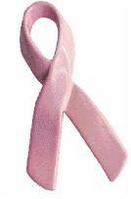Trudy Simpson, Freelance Writer
A woman who lost 14 members of her family to breast cancer has decided to remove both her breasts to prevent her from getting the disease.
Fashion store owner Shirley McQueen is so terrified that one day she'll wake up and find a lump in her breast, she has opted to have surgery as a preventative measure.
She will be checking into a clinic next month for pre-surgery checks before undergoing breast-removal surgery.
Frustrated with death and attending funerals, McQueen, whose mother died of breast cancer when she was five years old, is determined to see her children get married, hence her drastic pre-emptive move.
And not even a man would have a say in her decision.
She said: "Even if I had a man, it wouldn't matter. I don't want to die prematurely. I want to see my children marry. My mom did not have that opportunity. None of the women in my family did. This is a lot easier to deal with than finding a lump in my breast."
cried all her life
She continued: "I've cried all my life. This is something you learn to live with. I have been planning my funeral since my mother died. I am at the point where I am fed up. I feel like I'm standing in the middle of the road waiting for something to hit me."
McQueen is backing a breast-cancer awareness fund-raiser being staged by the South African High Commission.
She said enough black women do not take the disease seriously and she is hoping to broaden discussion around the issue.
"This is really to make black people aware and to get them to talk about it. Let us start by asking questions, starting a campaign and answering the question of why so many more black women are dying from breast cancer. Let us try and trace as far back as we can go to see who has died from what in our families," she urged, as she spoke to The Voice from the comfort of the living room of her South East London home.
McQueen said that many second- and third-generation Britons do not ask questions about their African and Caribbean ancestors and so may not know they are at high risk for breast cancer. Many others prefer to wrongly live in denial.
Displayed prominently in her living room are photographs of two members of her family, beloved mum, Elrida, and sister, Bernadette, who both died from breast cancer when they were age 52.
There was an eerie calmness at first in her voice as she talked about the dead, among them three aunts, two of her maternal grandaunts and four of her cousins.
Then anger shimmered in her tone as she revealed that many women in her own family were still not getting the message that they were at risk and needed to take care of themselves.
"When my sister had cancer, her daughter was pregnant. She wanted to live to see her grandchild but unfortunately she didn't. I think it (her death) was unnecessary. Perhaps she would have lived if she had taken it more seriously. I told her to have a mastectomy and she refused. It's sad. She was such a healthy, happy person and for someone so healthy to die from breast cancer, it's sad," she said.
Research which focused on the biological differences between the cancers that attack black women and white women, showed that black women are more likely to get breast cancer at a younger age, and their tumors tended to be more aggressive and harder to treat.
Data from the American Cancer Society also showed that only 76 per cent of black women diagnosed with breast cancer will live to the long-term survival mark of five years, compared with 90 per cent of white women.
Other studies have blamed inadequate screening rates. In fact, a recent study expressed concern that many women in ethnic minority groups lacked knowledge about breast cancer, were not getting screened, or were not checking their breasts for unusual changes.
Reprinted from the VOICE newspaper.

